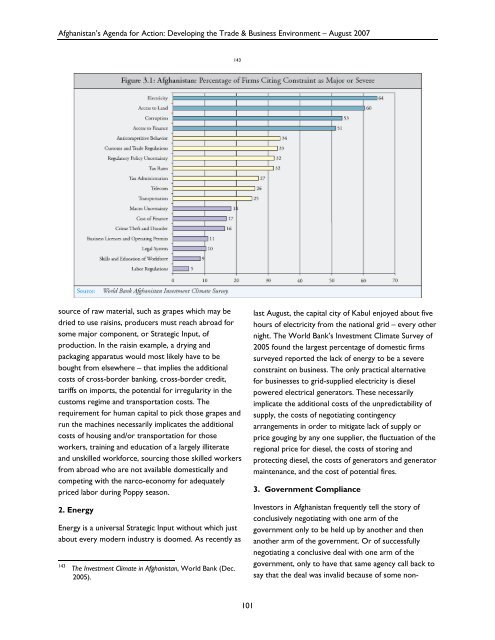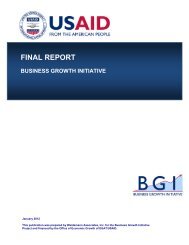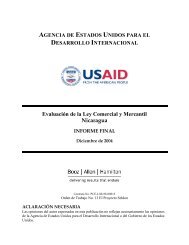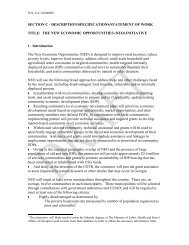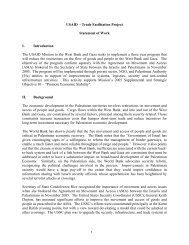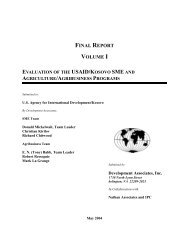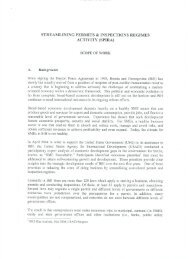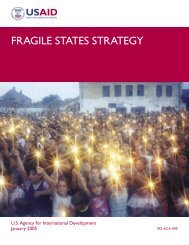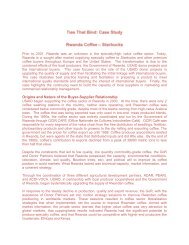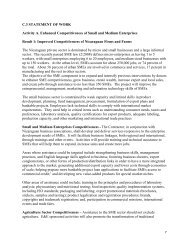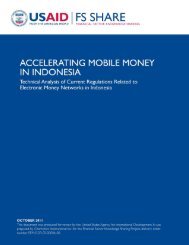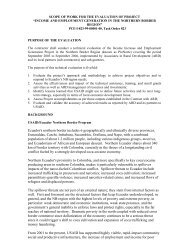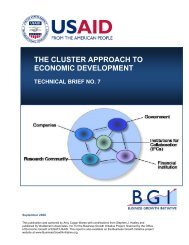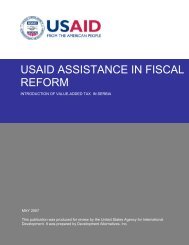Afghanistan's Agenda for Action - Economic Growth - usaid
Afghanistan's Agenda for Action - Economic Growth - usaid
Afghanistan's Agenda for Action - Economic Growth - usaid
Create successful ePaper yourself
Turn your PDF publications into a flip-book with our unique Google optimized e-Paper software.
Afghanistan’s <strong>Agenda</strong> <strong>for</strong> <strong>Action</strong>: Developing the Trade & Business Environment – August 2007143source of raw material, such as grapes which may bedried to use raisins, producers must reach abroad <strong>for</strong>some major component, or Strategic Input, ofproduction. In the raisin example, a drying andpackaging apparatus would most likely have to bebought from elsewhere – that implies the additionalcosts of cross-border banking, cross-border credit,tariffs on imports, the potential <strong>for</strong> irregularity in thecustoms regime and transportation costs. Therequirement <strong>for</strong> human capital to pick those grapes andrun the machines necessarily implicates the additionalcosts of housing and/or transportation <strong>for</strong> thoseworkers, training and education of a largely illiterateand unskilled work<strong>for</strong>ce, sourcing those skilled workersfrom abroad who are not available domestically andcompeting with the narco-economy <strong>for</strong> adequatelypriced labor during Poppy season.2. EnergyEnergy is a universal Strategic Input without which justabout every modern industry is doomed. As recently as143The Investment Climate in Afghanistan, World Bank (Dec.2005).last August, the capital city of Kabul enjoyed about fivehours of electricity from the national grid – every othernight. The World Bank’s Investment Climate Survey of2005 found the largest percentage of domestic firmssurveyed reported the lack of energy to be a severeconstraint on business. The only practical alternative<strong>for</strong> businesses to grid-supplied electricity is dieselpowered electrical generators. These necessarilyimplicate the additional costs of the unpredictability ofsupply, the costs of negotiating contingencyarrangements in order to mitigate lack of supply orprice gouging by any one supplier, the fluctuation of theregional price <strong>for</strong> diesel, the costs of storing andprotecting diesel, the costs of generators and generatormaintenance, and the cost of potential fires.3. Government ComplianceInvestors in Afghanistan frequently tell the story ofconclusively negotiating with one arm of thegovernment only to be held up by another and thenanother arm of the government. Or of successfullynegotiating a conclusive deal with one arm of thegovernment, only to have that same agency call back tosay that the deal was invalid because of some non-101


